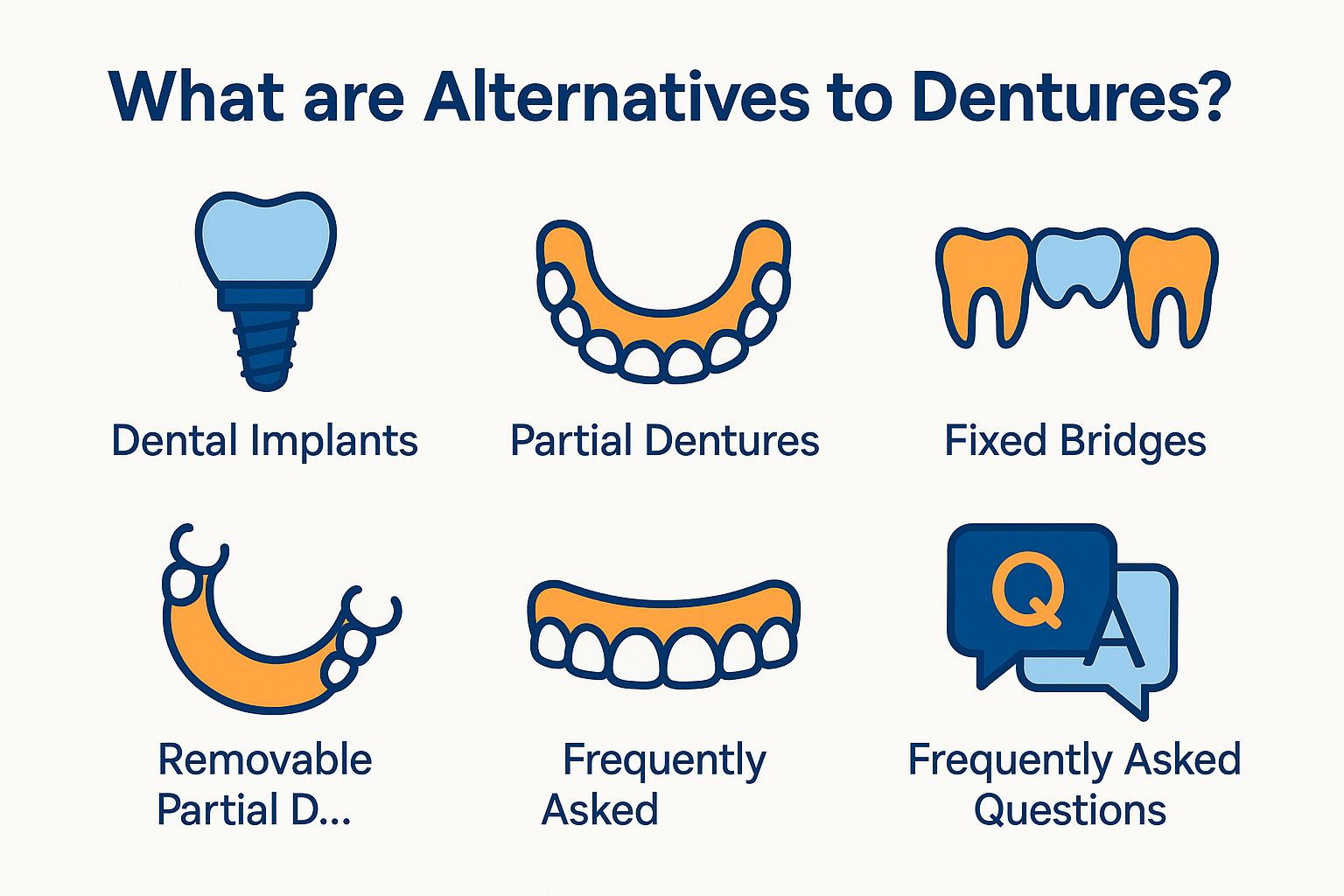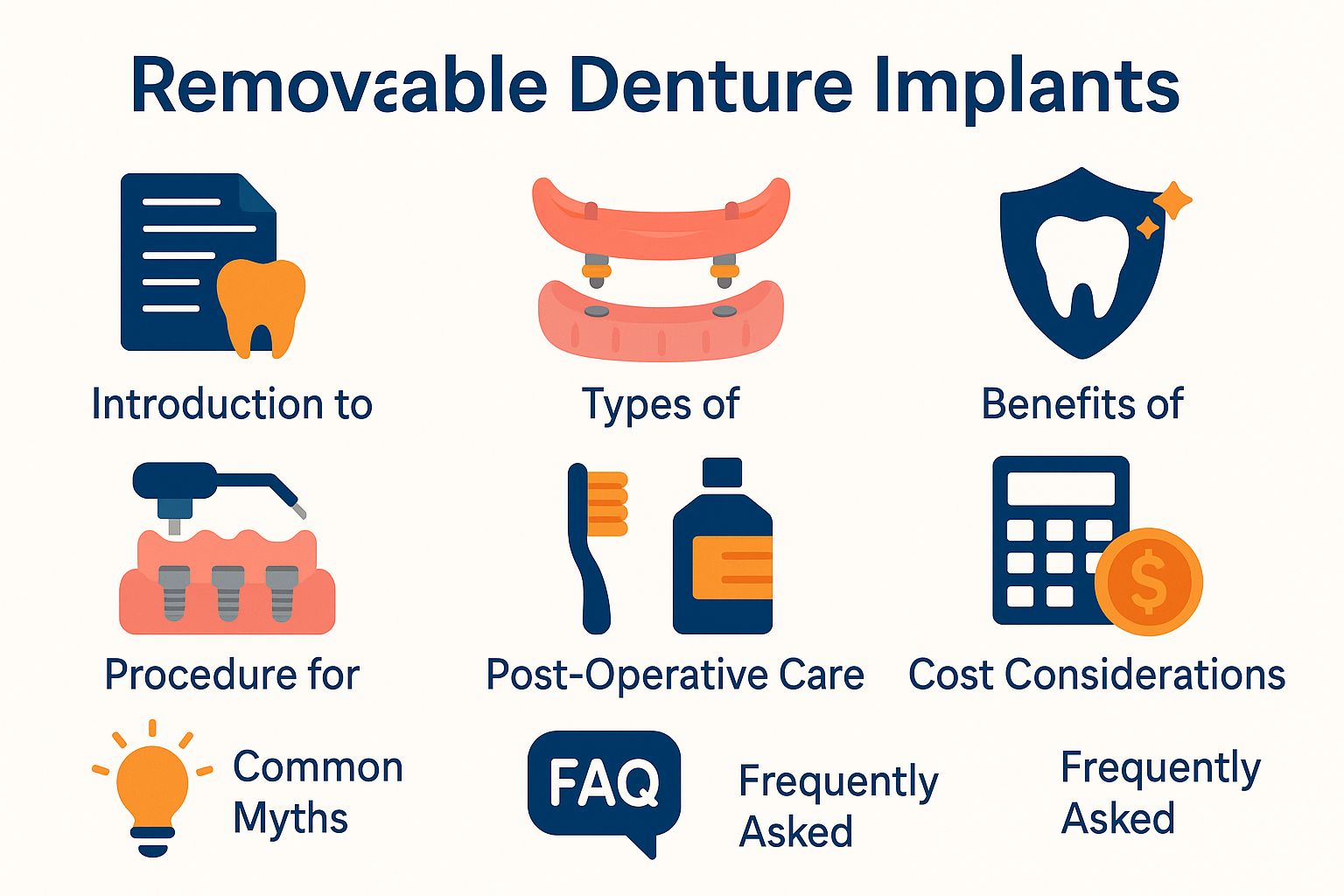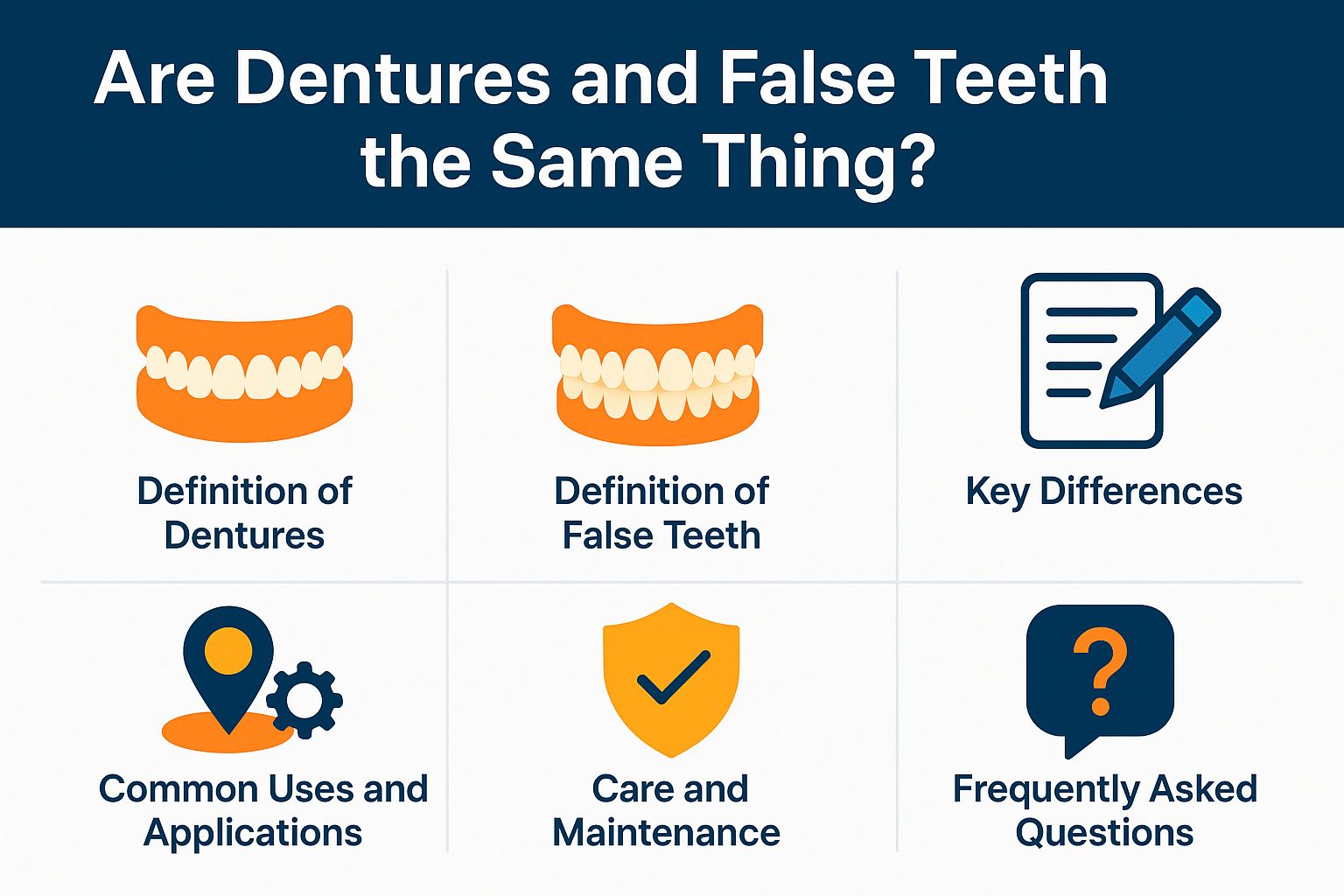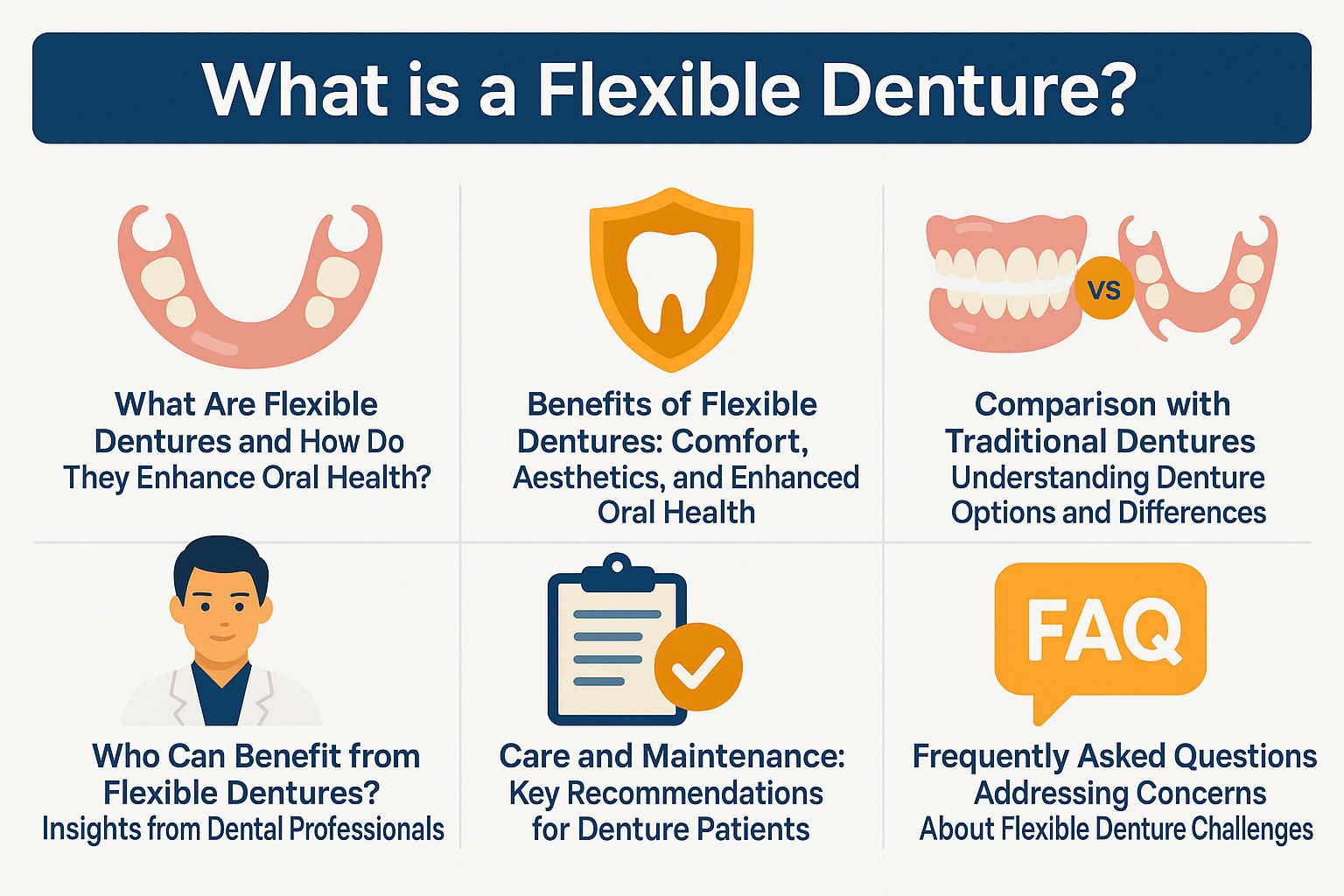
Flexible dentures are a modern solution for your oral health. They offer more advantages than traditional options. Crafted from advanced thermoplastic materials, these innovative dental devices provide enhanced comfort and adaptability. This article explores flexible dentures, their benefits, and comparisons with traditional options. Whether you’re considering a denture upgrade or seeking insights from a dental professional, understanding flexible dentures can help you make informed decisions about your smile.
What Are Flexible Dentures and How Do They Enhance Oral Health?
Flexible dentures are removable prosthetics made from thermoplastic materials. They enhance comfort and functionality. They provide a durable solution for those seeking improved denture aesthetics and comfort.
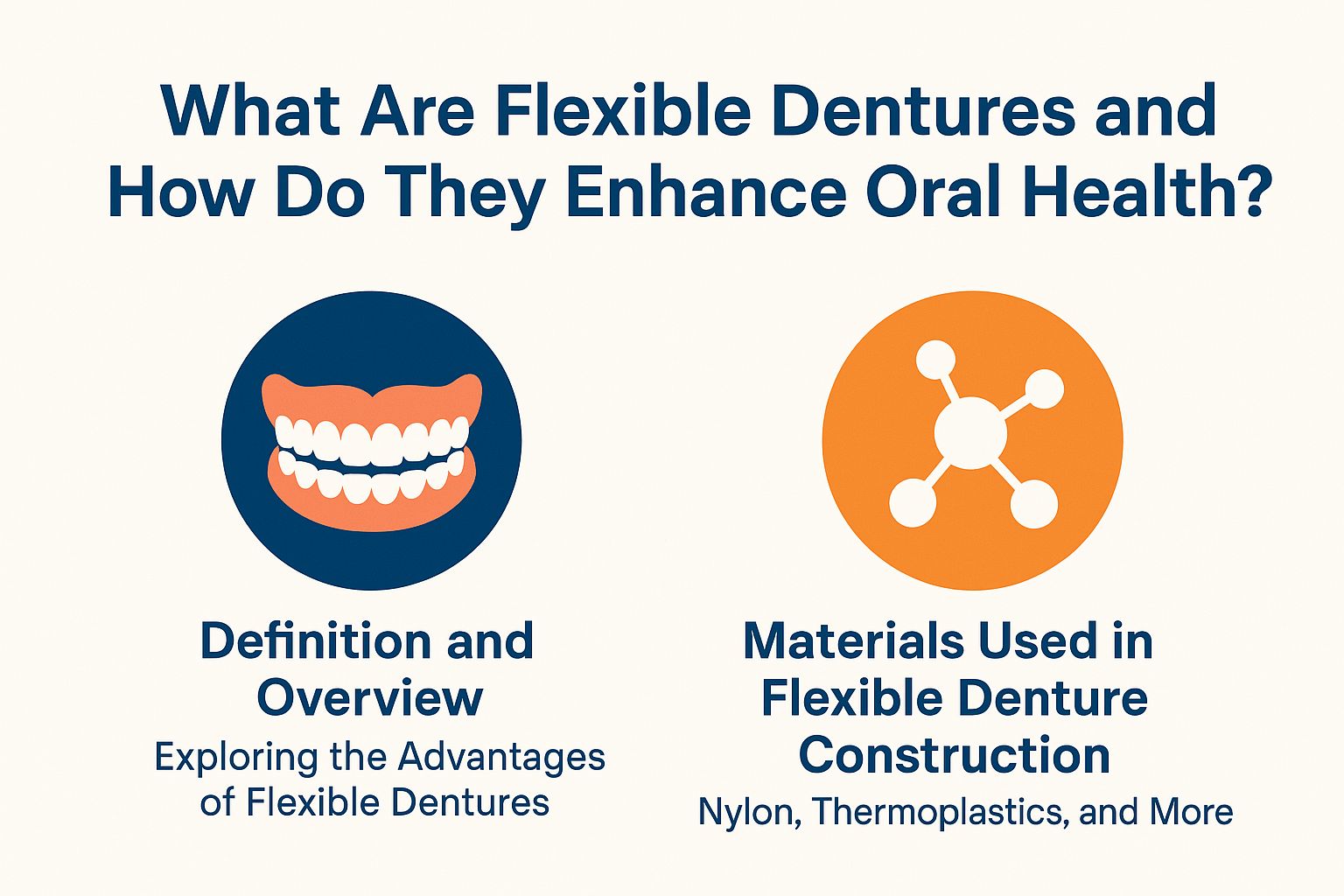
Definition and Overview: Exploring the Advantages of Flexible Dentures
Flexible dentures are prosthetic devices designed to conform to the contours of the mouth, offering a secure fit without the necessity for metal clasps.
Unlike traditional dentures that use a rigid acrylic base and metal attachments, flexible dentures use softer nylon materials. This design allows them to move with the gums for more comfort and less irritation.
This design improves retention, enabling frequent wear without adhesives. They closely mimic the appearance of natural gum tissue, making them visually appealing.
Moreover, they often last longer than conventional dentures, making them a smart investment for active individuals.
Materials Used in Flexible Denture Construction: Nylon, Thermoplastics, and More
Flexible dentures are made from biocompatible thermoplastic materials like nylon and acrylic. These materials provide comfort, durability, and a lightweight alternative to traditional acrylic frameworks.
Nylon is recognized for its exceptional flexibility, allowing the denture to conform to the wearer’s movements, thereby reducing discomfort. In contrast, acrylic provides a lightweight alternative that maintains strength while effectively mimicking the natural appearance of gums and teeth.
Users often find flexible dentures feel more natural and fit better. This makes them a great choice for those wanting comfort and functionality.
Benefits of Flexible Dentures: Comfort, Aesthetics, and Enhanced Oral Health
Flexible dentures have many advantages. They improve comfort and look natural, boosting patient confidence.
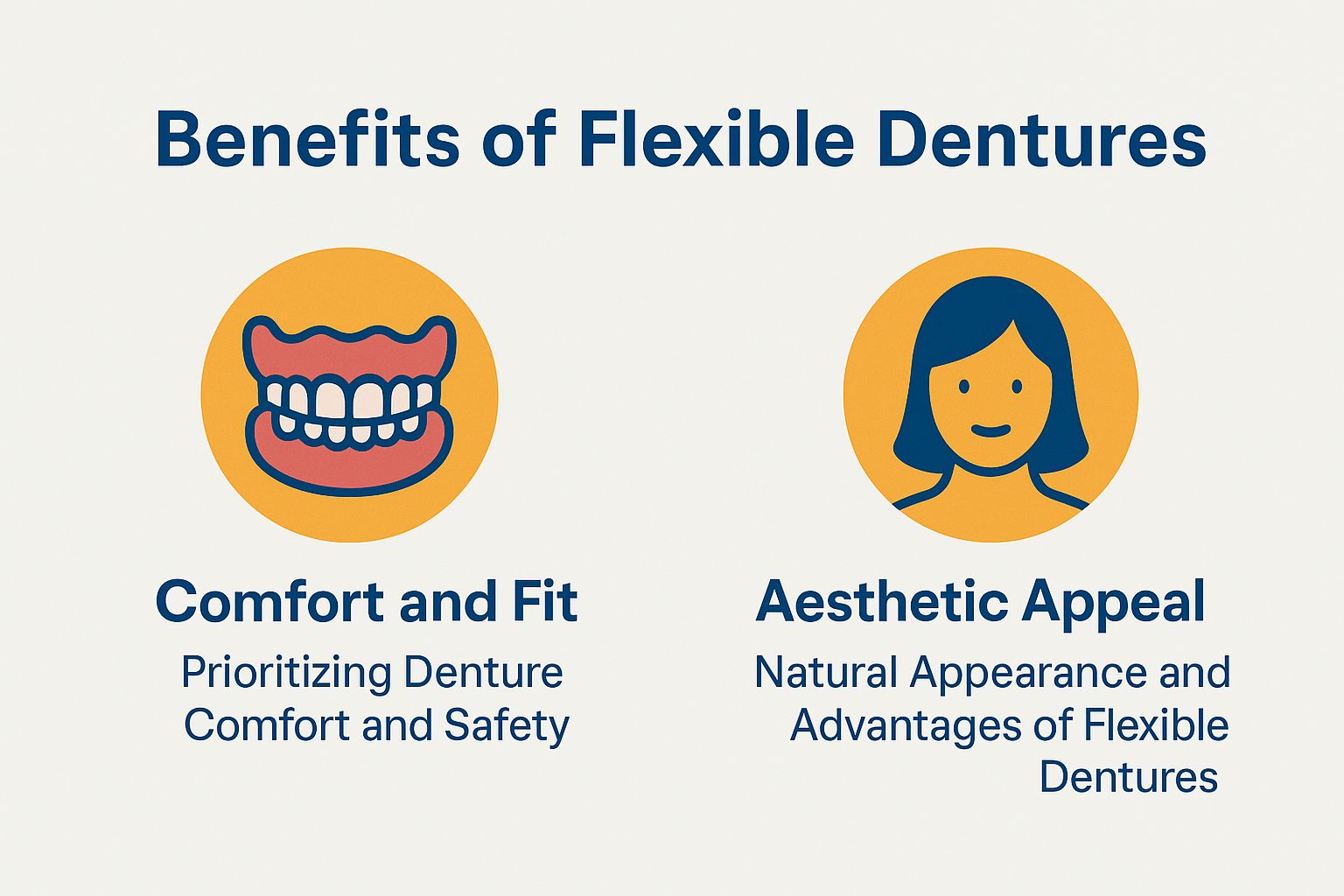
Comfort and Fit: Prioritizing Denture Comfort and Safety
Flexible dentures are designed to offer enhanced comfort and safety, effectively minimizing gum irritation and improving the overall fit for the user, ensuring optimal gum health.
In contrast to traditional dentures, flexible dentures are constructed from a softer, thermoplastic material that molds to the unique contours of the mouth. This flexibility ensures a secure fit and reduces sore spots and pressure points often caused by rigid dentures.
For example, brands like Valplast and Flexite offer customizable options that fit individual gum shapes.
Additionally, regular cleaning and maintenance help reduce gum sensitivity. They prevent food buildup and bacteria for a more comfortable experience.
Aesthetic Appeal: The Natural Look of Flexible Dentures
Flexible dentures enhance the wearer’s smile beautifully.
They mimic the natural color of gums, matching the wearer’s skin tone and teeth.
Unlike traditional dentures, flexible dentures fit the unique shape of your mouth for comfort and security.
Custom shaping options help achieve your ideal smile, boosting confidence in social situations.
Comparing Flexible and Traditional Dentures
Flexible and traditional dentures differ significantly in materials and user experience, affecting patient choices.
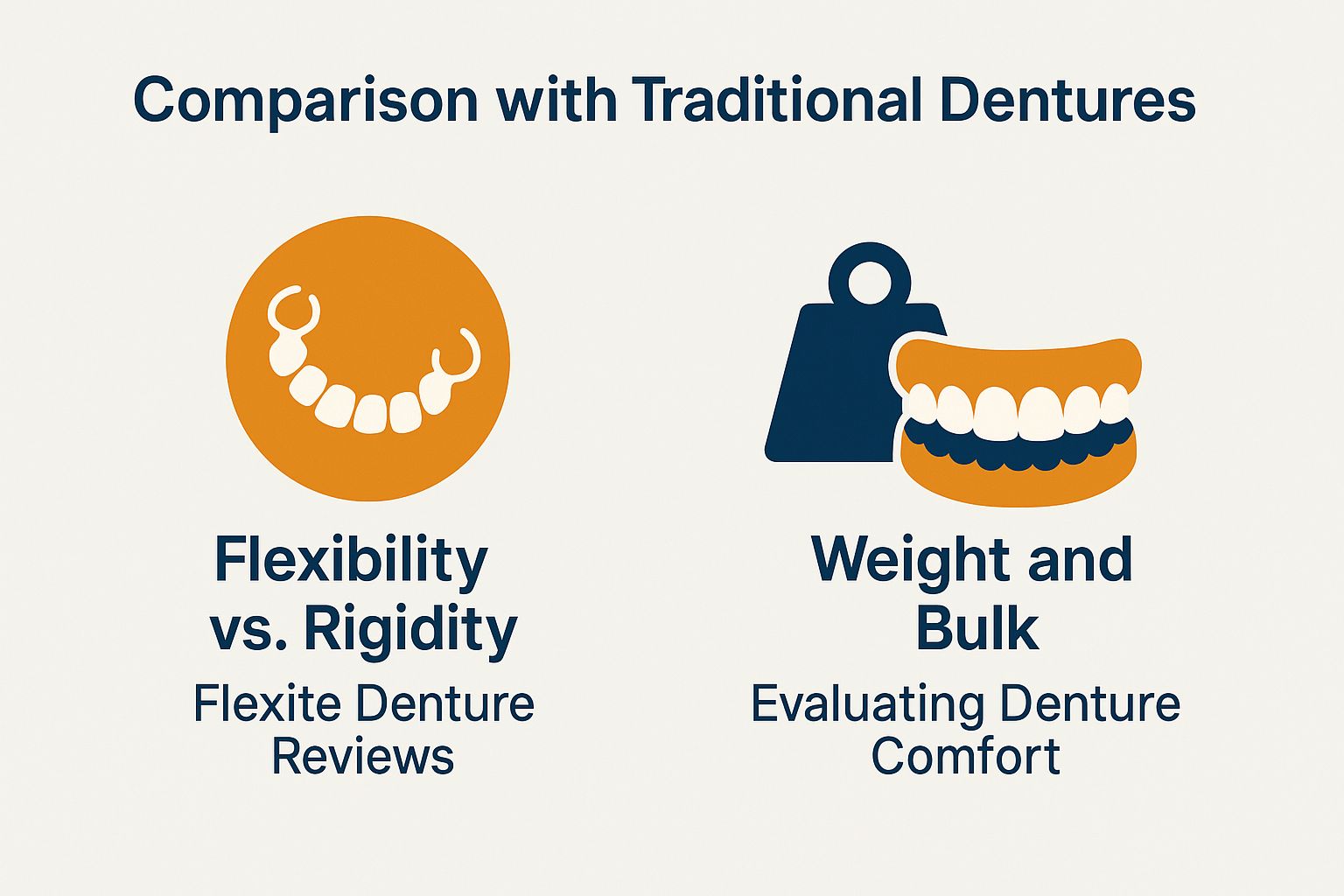
Flexibility vs. Rigidity: A Closer Look
Patients praise flexible dentures for their comfort and natural feel. For instance, a recent review noted that a user experienced reduced soreness due to the flexible material’s ability to conform to the gums, thereby minimizing pressure points.
Unlike traditional dentures, which may cause irritation and necessitate frequent adjustments, flexible dentures are designed to move in harmony with the natural structures of the mouth. This design results in a more secure fit and enhanced functionality, particularly during eating and speaking.
Many users report a significant boost in confidence attributable to the seamless appearance and comfort provided by flexible denture options.
Weight and Bulk: Evaluating Denture Comfort and Adjustments
Patients frequently express a preference for flexible dentures due to their lighter weight, which significantly enhances comfort when compared to the bulkier nature of traditional dentures. The lighter construction of flexible dentures exerts less pressure on the gums, thereby reducing soreness during wear.
In contrast, traditional dentures may often feel heavy and cumbersome, resulting in discomfort, particularly for first-time users. Flexible dentures are crafted from thermoplastic materials that adapt to the contours of the mouth, providing a snug fit without the necessity for adjustments.
Patients who have experience with both types typically report a higher satisfaction rate with flexible options, valuing the ease of wear and improved aesthetics they offer.
Who Benefits from Flexible Dentures?
Seniors benefit from these dentures as the soft material provides a much more comfortable fit.
These dentures are particularly advantageous for seniors who may find traditional dentures challenging, as the soft material offers a significantly more comfortable fit. Additionally, patients with sensitive gums can experience relief, as flexible dentures minimize irritation commonly associated with rigid alternatives.
Individuals seeking aesthetic improvements appreciate the ability of these dentures to closely resemble natural teeth, thereby contributing to a more attractive smile.
By consulting with a qualified dentist, patients can explore various materials and designs tailored to their specific needs, ensuring both functional effectiveness and visual appeal.
Care and Maintenance Tips for Your Dentures
Proper care is essential for the longevity and appearance of flexible dentures.
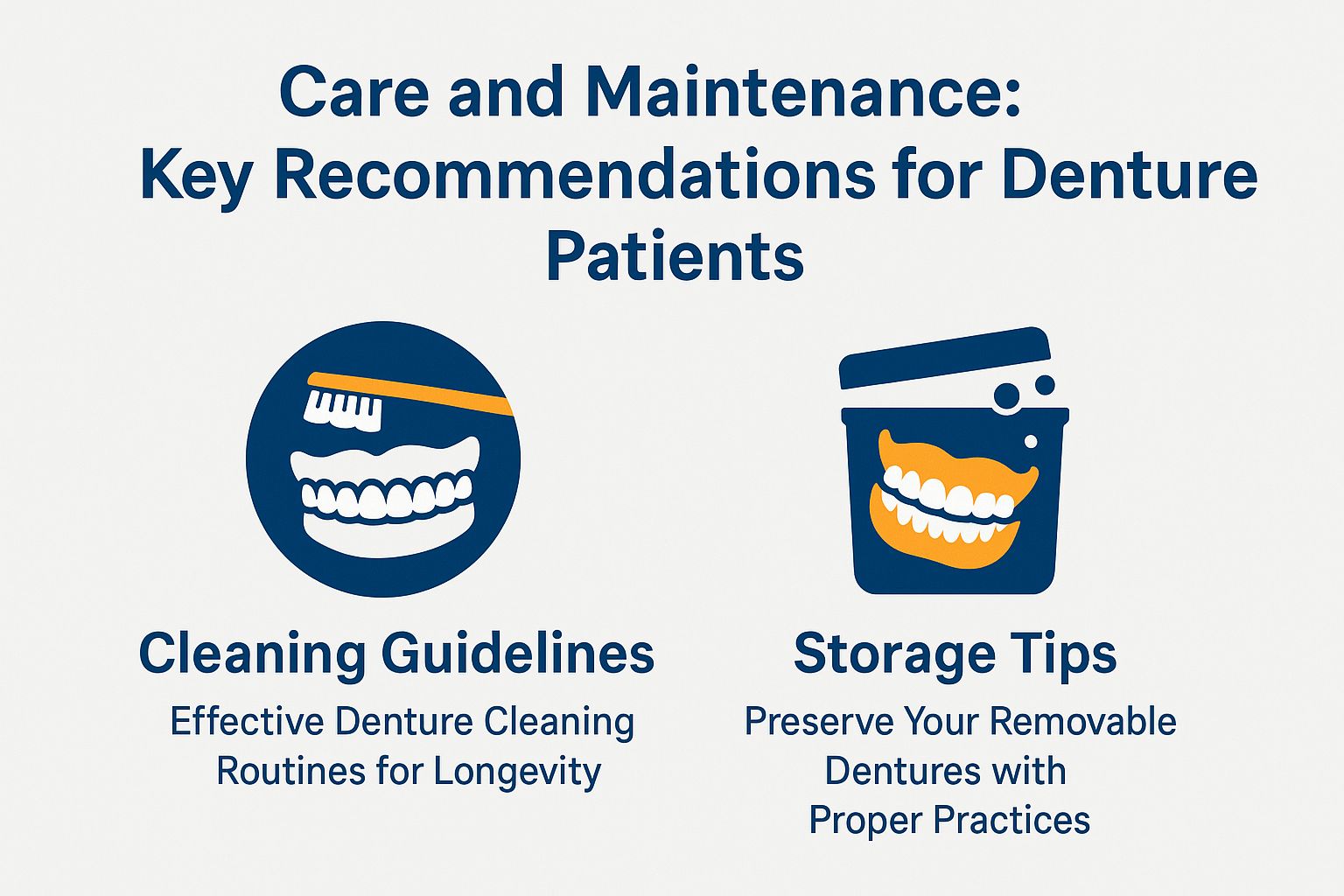
Cleaning Guidelines: Effective Denture Cleaning Routines for Longevity
Follow these cleaning guidelines to keep your flexible dentures in great shape and prevent stains and bacteria.
- Commence by rinsing the dentures under lukewarm water to eliminate loose debris.
- Utilize a soft-bristle toothbrush designated for denture care, along with a gentle, non-abrasive cleanser such as Efferdent or Polident, for thorough cleaning.
- It is advisable to brush the dentures twice daily, preferably after meals and prior to bedtime, in order to uphold hygiene standards.
- Soak the dentures in a cleaning solution for 10 to 15 minutes each day to enhance their cleanliness.
Brush your gums and mouth to prevent buildup around the dentures. This practice helps maintain overall oral health.
Storage Tips: Preserve Your Removable Dentures with Proper Practices
Store flexible dentures properly to maintain their shape and integrity. Use a moisture-retaining container to keep them in optimal condition.
Use a denture-specific soaking solution to prevent drying out. This helps preserve flexibility and fit.
Avoid extreme temperatures by keeping dentures at room temperature. Bathrooms may have fluctuating heat and humidity.
Regularly clean the storage container to prevent bacterial growth. This safeguards the dentures from contamination.
Frequently Asked Questions: Addressing Concerns About Flexible Denture Challenges
What is a Flexible Denture?
A flexible denture is a type of removable denture that is made from a flexible, lightweight material, usually a type of nylon. It is used to replace missing teeth and is designed to be more comfortable and less visible than traditional dentures.
How is a Flexible Denture different from a traditional denture?
A traditional denture is made from a rigid material, such as acrylic, and can be uncomfortable and bulky. A flexible denture, on the other hand, is made from a lightweight and pliable material, making it more comfortable and less noticeable in the mouth.
What are the benefits of a Flexible Denture?
Flexible dentures, made from advanced materials like thermoplastic materials and biocompatible plastics, are more comfortable to wear and are less likely to cause irritation and sore spots in the mouth. They are also more durable and less likely to break or fracture compared to traditional dentures, thanks to the use of durable materials like Nylon. Additionally, they are more aesthetically pleasing and can improve the appearance of a person’s smile, enhancing one’s oral health.
How is a Flexible Denture made and fitted? Insights from Dr. Robert Lee and Rockville Dental Arts
A dentist takes impressions of your mouth and sends them to a lab to create a flexible denture. The denture is then custom-made based on these impressions. Once the denture is ready, the dentist will fit it for the patient, ensuring proper denture fitting, and make any necessary adjustments for comfort and proper fit.
Can anyone get a Flexible Denture? Considering Dental Recommendations and Assessments
Flexible dentures are suitable for most people, but a thorough dental assessment by a dentist is needed to determine if it is the best option for the individual. In some cases, traditional dentures or even partial dentures may be recommended instead. People with certain medical conditions or severe gum disease may not be eligible for a flexible denture, highlighting the potential disadvantages of flexible options.
How do I take care of my Flexible Denture? Expert Tips on Denture Maintenance
Clean your flexible denture daily with a soft toothbrush and denture cleaner. This is essential for regular maintenance. It should also be soaked in a denture solution overnight to keep it moist and prevent it from drying out. It is also important to visit the dentist regularly for check-ups, denture adjustments, and denture repair if needed.
